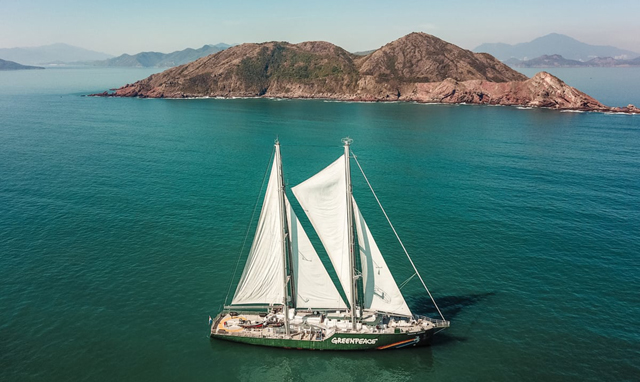
THE HAGUE, May 12, 2023 (BSS/AFP) - Greenpeace and residents of the Caribbean island of Bonaire have launched legal action against the Dutch government to protect it from rising sea levels, the environmental group said on Thursday.
The seven residents of the tiny Dutch territory and Greenpeace served The Hague with a formal legal warning, which is the final step before taking them to court, Greenpeace said.
The group announced it was planning legal action in September after a study showed that as much of a fifth of Bonaire could be swallowed up by the sea by the end of the century.
"In the letter they demand that the government protects Bonaire against the consequences of climate change," Greenpeace said in a statement.
"The summons letter is the last warning to the government to quickly reduce CO2 emissions and to take concrete measures to keep Bonaire safe. Now and in the future."
Under Dutch law the delivery of the warning letter is the first legal step to bringing the state to justice for climate change, Greenpeace spokesman Bram Karst told AFP.
"I see that climate change is having an effect on Bonaire, even though our island is small and so are our emissions," Jackie Bernabela, a 65-year-old teacher who lives on Bonaire, said in the letter.
"Residents of Bonaire should not be treated as second-rate Dutch citizens, we are entitled to be treated equally," added Onnie Emerenciana, 60, a gardener and Bonaire resident.
Bonaire in the Leeward Antilles Islands is one of the Netherlands' former colonies in the Caribbean.
In 2010 it became one of three so-called special municipalities of the Netherlands along with Saba and St Eustatius.
The low-lying Netherlands is known for its climate adaptation measures such as a huge network of dikes to protect against the North Sea, but it is also one of Europe's biggest emitters in proportion to its population.
Climate action has increasingly become an issue for international justice.
Pushed by the Pacific island of Vanuatu, the United Nations General Assembly in March took the landmark step of asking the International Court of Justice, the UN's top court, to outline countries' duties to curb global warming.